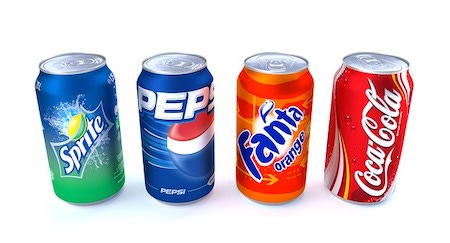Substitute Sports Goods
6 minute read · Issue Number 121 · May 20th, 2022
Quick update – this week, I released episode 100th of the Halftime Snacks Podcast! I’m incredibly grateful for all the guests and listeners, and I’m looking forward to the next 100 episodes.
Rising interest rates, struggling supply chains, and a damaged economy will push consumers to cut some expenses and prioritize spending.
Due to the role that sports-related products/experiences have in sports consumers and their utility – we’ll likely see a significant decrease in the demand for those products.
Nevertheless, I want to take this opportunity to talk about a theory in economics and consumer theory that may explain what sports consumers will do next: Substitute Goods.
Substitute Goods
In economics and consumer theory, a substitute good is a product or service that consumers see as essentially the same or similar-enough compared to another product.
The goal?
To provide alternatives to the consumer when they are looking to fulfill a purpose. Additionally, adding products to a market creates competition and lowers prices.
The simplest example:
If you’d want to drink a Coca-Cola, but the store ran out of stock, you could buy a Pepsi as a substitute for your choice. It has a similar goal for your needs.
An Android for an iPhone, Domino’s Pizza vs. Pizza Hut, Zoom vs. Google Meet – substitute goods are everywhere.
Some products are easier to substitute through similar brands or product types than others – it really depends on individual preferences.
If a product can substitute another entirely, it’s labeled a perfect substitute, and it can be easily replaced. If it can only partially benefit the consumer, it’s an imperfect substitute, and the consumer will easily perceive the difference.
For instance, if you’re looking for any entertainment on TV, you might substitute a soccer match with a movie, or vice-versa depending on your preferences.
It’s important to note that demand shifts from substitute goods when prices change. If Coke and Pepsi are perfect substitutes and only Coke raises their price, Pepsi will benefit from increased demand.
Substitute Sports Goods
Under the current macroeconomic environment, companies earning their revenues directly from the consumer in the sports industry are extremely likely to raise prices.
Hence, according to the economic theory – we can expect the sports consumer to look for substitute sports goods quickly to replace products with things that can achieve the same purpose for less.
For example:
In apparel, equipment, merch, and clothing, we could expect consumers to look for substitutes to costly brands like Nike, Adidas, or Lululemon and switch to more affordable alternatives.
For TV subscriptions like the NBA or NFL League Pass, we could expect increased subscriptions to generic substitutes like ESPN or DAZN, increased audiences on sports radio, and higher usage of diverse sports mobile apps.
We could expect consumers to substitute fitness memberships with home fitness equipment, cheaper gyms/studios, or free workout alternatives like running, yoga, etc.
Live-games ticket buyers may substitute experiences by attending minor league games, the cinema, the theater, or other forms of live entertainment.
The Bottom Line
The substitute goods theory allows us to understand how the sports consumer will react to price hikes in some of their most frequently bought sports-related products.
For companies, it’s a real challenge to keep up with sales expectations when things get tough, and raising prices will result in an overall decreased demand for their products.
Consumers will adjust their spending at all consumption levels based mostly on their individual preferences.
They will be quietly switching between products – things that are more easily replaceable will be the first to experience that downtrend in sales – if they haven’t already.
🎙 Halftime Snacks Podcast
SimBull – The Stock Market for Sports
Kenneth’s the founder of SimBull – the stock market for sports, allowing fans to profit from their sports knowledge by trading shares of teams.
The platform was designed to lower gambling fees, create long-term investing in the sports industry, and develop a new form of sports entertainment centered around the stock market.
We talked about the story and foundation of SimBull, the features, concept, and product roadmap. Finally, we discussed the business model, economics, and market that SimBull created.
Follow the Halftime Snacks on Twitter | Instagram | LinkedIn
Apply to be a guest on the Halftime Snacks Podcast here.





